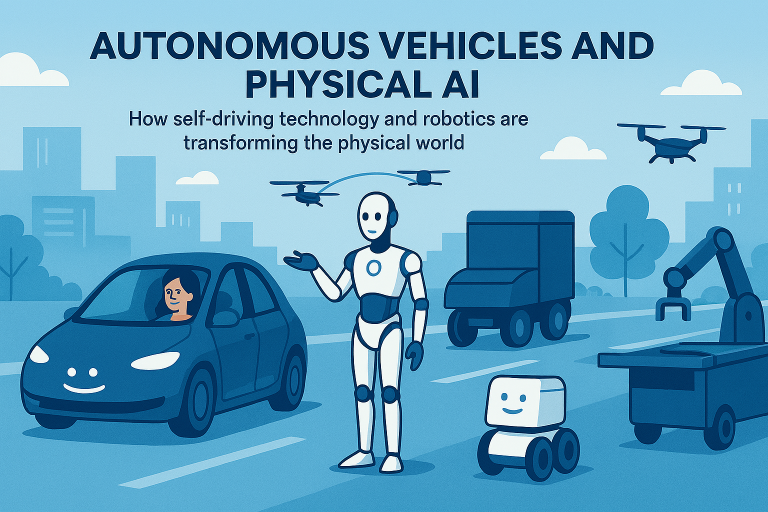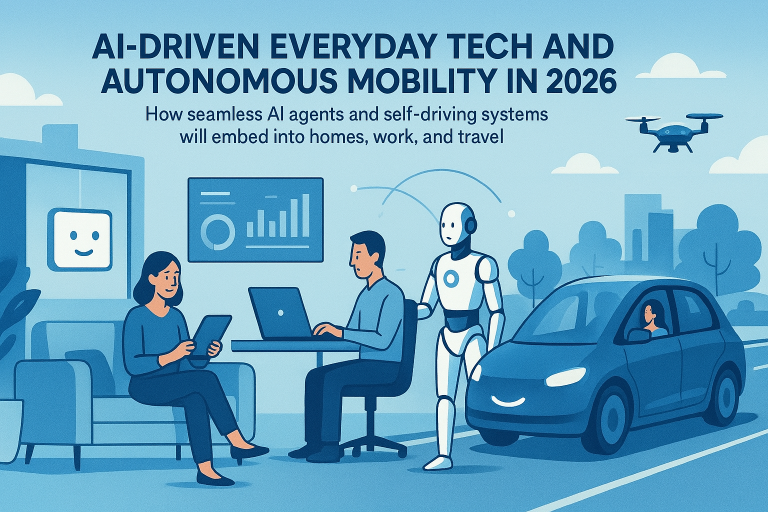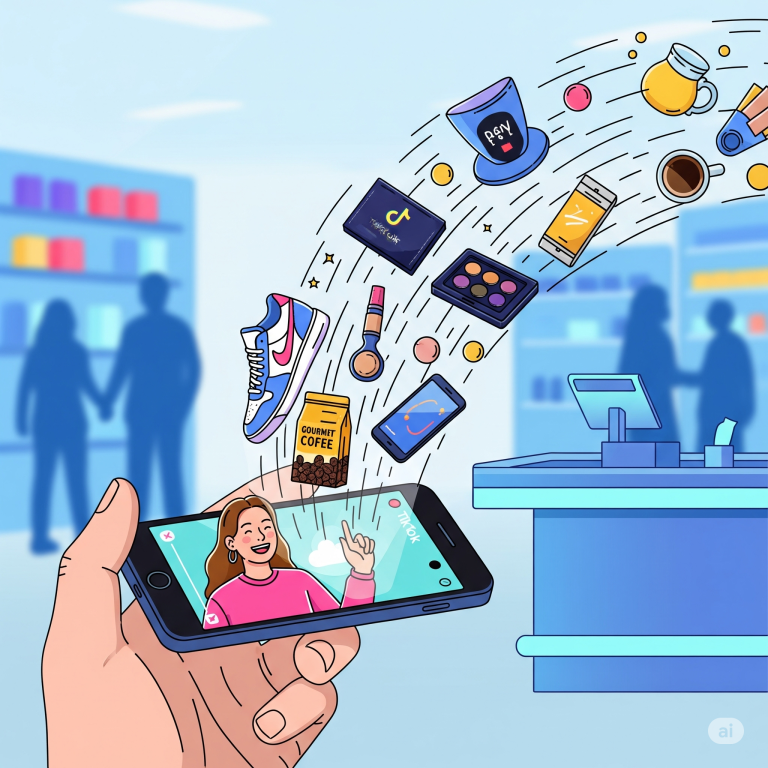
AI in marketing
In a world where information is at our fingertips and attention spans are shrinking, the need for businesses to reach their audience in a personalized, meaningful way has never been more urgent. AI in marketing is no longer a distant concept or a futuristic tool — it has arrived, transforming the landscape of digital marketing and introducing new levels of sophistication in marketing automation and content personalization. As companies strive to cut through the noise, AI-powered marketing is helping them achieve previously unimaginable levels of precision in targeting, engagement, and conversion.
The Emergence of AI in Marketing
Artificial intelligence, once confined to theoretical discussions in tech circles, has found its way into the very heart of digital marketing. Its transformative potential lies in its ability to process vast amounts of data at lightning speeds, identify patterns, and make data-driven decisions that would be impossible for human marketers to replicate at scale.
The application of AI in marketing can be seen across all aspects of the industry, from the automation of repetitive tasks to the creation of hyper-personalized experiences for consumers. At its core, AI is not just about enhancing efficiency — it’s about changing the very way businesses interact with their customers.
One of the earliest adoptions of AI in marketing was seen in customer segmentation. Traditional marketing relied on broad categories of demographics to craft generalized messages, but AI allows for segmentation based on more nuanced data, such as browsing behavior, purchase history, and social media interactions. The result is a shift from a “one-size-fits-all” approach to a highly personalized experience that can cater to individual preferences.
Marketing Automation: The Backbone of AI-Powered Campaigns
At the heart of the AI revolution in digital marketing is marketing automation. The mere mention of automation often conjures up images of tools that send out generic email blasts or post scheduled updates on social media. However, AI-powered marketing tools have taken this concept far beyond simple automation.
Now, automation can be fine-tuned to perform specific tasks based on real-time data. For example, AI algorithms can automatically adjust a campaign’s messaging depending on the recipient’s past interactions, interests, or even the time of day. Marketers can use these tools to segment their audiences more effectively and deploy more sophisticated strategies, whether they’re sending personalized emails, triggering retargeting ads, or optimizing website content for individual users.
One of the most powerful aspects of marketing automation powered by AI is its ability to work around the clock without human intervention. This allows for an unprecedented level of scalability, meaning marketers can engage with millions of consumers at once, without losing the personal touch that makes an impact.
Behavioral Targeting
Through AI in marketing, tools now have the ability to track and analyze customer behavior in real-time, including actions such as website visits, social media engagement, and even offline interactions. This data can then be used to create highly targeted campaigns that align with an individual’s needs and preferences. If a potential customer browses a particular product category, AI can trigger ads for that category across multiple platforms, all while adjusting the messaging to be most relevant based on their specific behavior.
Predictive Analytics
Another game-changer in marketing automation is predictive analytics, which uses AI to forecast future behaviors based on historical data. This can range from predicting when a customer is most likely to make a purchase to determining the best time to send an email for maximum engagement. Marketers can then tailor their campaigns to act upon these insights, ensuring they reach consumers with the right message at the right moment.
Content Personalization: A New Era of Customer Engagement
Content personalization is one of the most impactful ways AI in marketing is reshaping digital marketing. The ability to deliver tailored experiences based on individual preferences, behaviors, and interactions is no longer just a trend; it’s a necessity.
As customer expectations evolve, they demand more than just generic content. Consumers today want to feel understood. They seek personalized experiences that resonate with their needs, interests, and aspirations. This is where AI-driven content personalization comes into play.
Dynamic Website Content
With the help of AI, marketers can dynamically alter the content a visitor sees when they land on a website. Rather than presenting a static homepage to every user, AI-powered systems can adapt the page in real-time based on the visitor’s profile. If a user has previously shown interest in outdoor equipment, they may be greeted with content showcasing the latest camping gear or hiking trails, even before they’ve clicked on anything.
By harnessing AI-powered marketing tools, businesses can also recommend products and services that align with each individual’s browsing history. This personalized approach not only increases user engagement but also enhances the likelihood of conversion, making it an invaluable tool for businesses across industries.
Personalized Email Campaigns
Email marketing has long been a staple of digital marketing, but AI in marketing has taken email personalization to new heights. Instead of relying on simple segmentation, AI tools can analyze customer behavior and preferences to craft emails that feel uniquely tailored to the recipient. These emails can include personalized subject lines, product recommendations, or offers based on what the customer has previously shown interest in.
Moreover, AI can predict the best time to send an email, increasing the chances of it being opened and acted upon. By optimizing email campaigns through AI, marketers can achieve greater engagement, increase click-through rates, and drive more conversions without manually managing every aspect of the campaign.
Video and Visual Content Personalization
Another area where AI is making waves is in the realm of visual and video content. Platforms like YouTube and Instagram already use AI to suggest videos or posts based on a user’s past engagement. However, businesses are now using AI-powered marketing to create personalized video content at scale. For example, personalized video ads can be generated by simply inputting a customer’s name or preferences, creating an experience that feels uniquely tailored to that individual.
The Role of AI in Marketing Technology

The intersection of AI in marketing and marketing technology has led to the creation of a new breed of tools designed to optimize every aspect of a marketing campaign. From content creation to customer relationship management (CRM), AI is enabling businesses to be more effective and efficient in their marketing efforts.
AI-Driven CRM Systems
AI-powered CRM systems are helping marketers track customer interactions across multiple channels, predict customer needs, and provide personalized recommendations. These systems also offer insights that allow businesses to refine their strategies and improve customer retention rates. By leveraging AI, businesses can transition from reactive customer service to proactive customer care, anticipating issues before they arise and offering tailored solutions.
Chatbots and Conversational Marketing
Chatbots powered by AI are transforming the way businesses interact with their customers. These bots can engage with users in real-time, answering queries, recommending products, and even guiding them through the purchase process. Unlike traditional customer service representatives, AI-powered chatbots can handle a multitude of interactions simultaneously, delivering personalized responses that make customers feel heard and valued.
Conversational marketing is taking on a whole new dimension with AI, allowing businesses to build deeper connections with customers through seamless, real-time communication. As AI continues to evolve, we can expect these systems to become even more sophisticated, offering increasingly personalized experiences.
The Impact of AI on Consumer Trust and Brand Loyalty
As AI in marketing continues to evolve, one of the most significant challenges facing businesses is ensuring that consumers remain comfortable with the technology. For all the benefits of personalization and automation, there is still a level of apprehension when it comes to data privacy. Consumers want to know that their data is being used responsibly and that they’re not simply a number in a marketing algorithm.
To build trust, businesses must be transparent about how they use AI and data. Ensuring that customers are fully informed about their privacy policies and how their data will be utilized is crucial to establishing long-term relationships. By showing respect for consumer privacy, brands can use AI-powered marketing to build stronger connections and foster loyalty.
The Future of AI-Driven Digital Marketing
As AI in marketing continues to evolve, so too will the ways in which businesses approach digital marketing. The next frontier is likely to see even deeper integration of AI, particularly in areas such as augmented reality (AR) and virtual reality (VR). These technologies, combined with AI, will allow for hyper-personalized experiences that are immersive and engaging.
Additionally, as the capabilities of machine learning improve, AI will become even better at predicting customer behavior, enabling marketers to not only react to customers but also anticipate their needs before they even express them. This anticipatory approach to marketing will create more seamless, personalized experiences that feel almost intuitive.
Ethical Considerations and Challenges
As AI becomes more deeply integrated into marketing technology, the ethical implications of its use will need to be carefully considered. Issues surrounding data privacy, transparency, and bias in AI algorithms will become even more pressing. Marketers must strike a balance between leveraging the power of AI and respecting the rights of consumers, ensuring that they use these tools responsibly and ethically.
Conclusion
The era of AI-powered marketing has arrived, and its impact on marketing automation and content personalization is profound. As businesses continue to embrace AI in marketing, they’re unlocking new levels of efficiency, engagement, and personalization. Through marketing technology, AI is allowing marketers to create hyper-targeted campaigns that resonate with individual customers on a deeper level than ever before. However, as with all advancements, this new frontier of marketing comes with its own set of challenges — particularly around data privacy and ethics. For businesses willing to navigate these complexities, the rewards will be immense, offering a new era of marketing that is smarter, faster, and more personalized than ever before.




